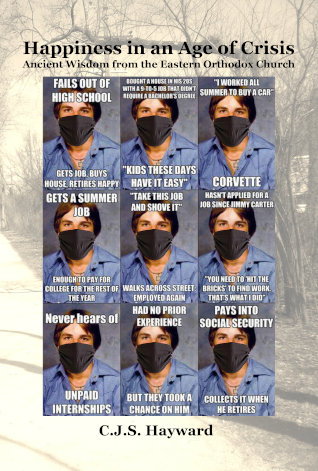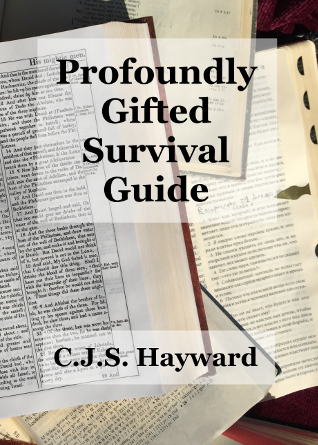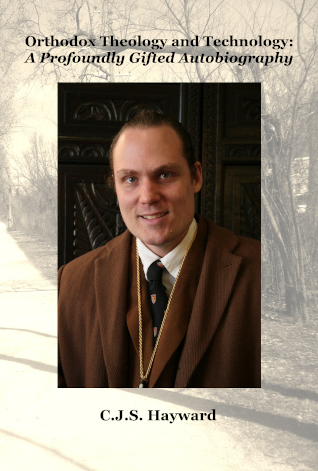Years back, I mused that only up to a certain point can money buy more necessities; it can only buy luxuries. Beyond another point, money cannot buy more luxuries; it can only buy status symbols. Beyond another point, money cannot buy additional status symbols; it can only bring power.
And to that I would add a Canadian roommate's comment, made in the 90's, that a middle class American has basically all the creature comfort there is to be had.
But there is a caveat. A good pair of walking or running shoes, or better barefoot shoes, may not buy especially more comfort for your feet, but it can make more attainable the goal of walking or running and the health benefits that that brings. And really, as the video I quote below says, if the health benefits of exercise could be put into a pill, that would be the most important wonder drug in history. Shoes will not make you happy if you just buy them and don't exercise, but they can put regular exercise in better reach, and a solid exercise regimen can make you happier.
It is in this spirit that I would like to look at things that can make you happy. Getting more luxuries on Amazon brings only a fleeting pleasure, but some of the right purchases used rightly can help you to greater happiness.
So here are a few things that, used rightly, might contribute to happiness.
(One important caveat: with a few exceptions, like Infowars Turboforce energy drinks, the benefits do not turn on a dime. You're more likely to feel noticeably better after a month of using EMF protective clothing and good nutritional supplements than in the next day or two. Give these things some time.)
A rugged outdoors computer
I spent more money buying a maxed-out GetAC x500 computer than I did on my car, as a computer that would let me work outside when weather permits and is built to last—for ages.
If you spend a fair amount of time on a laptop or desktop computer, it is a great advantage to have a computer with a sunlight-readable display. Macs usually have a brighter display than normal PC's, but rugged PC's are brighter than either. Rugged laptops are available on Amazon (you might consider a GetAC V110 or , and they can be built to last as a longer-term investment.
(If you just use mobile devices and don't really use a PC, then this item is optional.)
A stand desk, if you work from a desk
Standing with good posture is better for most people than sitting.
Lambs EMF protective clothing
We are surrounded by much higher doses of ambient wifi, radio, 3G, 4G, and 5G electromagnetic fields (EMF), and this can be a drain on your mood where you don't even recognize what is happening.
There is a lot of EMF protective clothing on Amazon, but this is an area where brands can vary in value significantly, and you can't easily tell good protective clothing from bad. I wear a long sleeve T-shirt (a regular T-shirt would also work), to protect organs in my torso, and a beanie to protect my brain.
There are many cheaper options on Amazon, not to mention more options. If you explore Amazon, just scroll on past things like a lead apron for dental X-rays to see the real options for protecting your head and torso.
A blocbag used like a sleeping bag, with an EMF protective T-shirt pulled over my head
While this does not offer absolute protection, it provides some opportunity to recharge.
One possible caveat: Throwing protective clothing through the wringer by putting it through the regular wash can slowly degrade its protective value. I don't wash protective clothes if I can't smell anything in the armpits, and when I do wash it, I rinse it with cold water, dry what I can with a towel, and hang it to air dry.
Infowars supplements
Vitamins, minerals, and other supplements can vary greatly in effectiveness and bio-availability, and the difference between a really good brand and a common brand is substantial.
I personally use Infowars multivitamin, vitamin C with zinc, an eyedropper's worth of iodine, and Turboforce.
At least one sun lamp
Indoors lighting is usually much dimmer than outdoors; it's enough to see but not enough to thrive. Seeing bright lights during the day can help naturally, and sunlight is on the shortlist in the video above about things that prevent diseases of civilization.
A light alarm
When I am woken up by the sound of a regular alarm clock, I don't feel very awake. There is something to be said for getting enough sleep, but I have found that I feel significantly more awake when I am woken by a simulated sunrise than just sound.
Amber goggles (or red goggles, for a stronger effect)
Conversely to sun lamps and light alarms, among other healthy sleep habits, a pair of blue-blocking amber goggles can block stimulating blue light, ideally worn one to two hours before bedtime.
A red flashlight for nighttime trips to the bathroom
If you need to get up in the night to use the bathroom, it's a lot easier to get to sleep if you go only by the light of a red flashlight and do not turn on overhead lights. Red and amber goggles still let in much too much stimulating light, and can make it harder, and take longer, to fall asleep. Using a red flashlight and no overhead lights is a good way to avoid being woken up so much it's hard to fall asleep.
Rob Wolf, The Paleo Solution: The Original Human Diet
It is my considered judgment that the more I learn about how foods are produced, the more I think most of what is sold in the grocery stores needs a materials safety data sheet. Something of that wakeup call is found in Sally Fallon's Nourishing Traditions: The Cookbook that Challenges Politically Correct Nutrition and Diet Dictocrats, but the latter just looks at best solutions under conditions of civilization. The Paleo Solution looks at what humans have been optimized for hundreds of thousands of years longer than the paleontological eyeblink civilization has existed for.
One friend explained to me that Cheerio's, which are sold under claims like "I'm eating Cheerios to be alive longer for my loved ones," are harvested by poisoning the plants with herbicides so it will be easier to get the oats off. Quaker Oats are also really bad news.
One tip for people who are on a limited budget: Balanced consumption of omega-3 and omega-6 fatty acids is important and something that we as a society do really badly. Usually meat, for instance, is heavily skewed towards omega-6. Canned wild caught fish (such as tuna and sardines) offers cheap omega-3 acids for people whose budget won't allow regular consumption of grass-fed, organic beef.
Orthodox fasting is done in agreement with your priest or spiritual father, but I might point out that fasting does not automatically mean grains and pasta; it is possible to keep a strict fast by eating Paleo vegetables.
A weighted blanket
Having a little weight resting on you promotes good sleep. I personally find a ten pound blanket better than others calculated for my weight; the general rule of thumb in choosing a weighted blanket is to pick a blanket about a tenth of your weight, and possibly throw in an extra pound or two. (This guideline is used for children as well as adults.)
Barefoot shoes (some good brands include Vivo Barefoot, FeelGrounds, Wildling, and Ashina Shoes)
Shoes with a raised heel are to some extent working with the body and train runners and walkers to lead with a heel strike that isn't how our feet are designed to work. Barefoot shoes work with the body rather than against it, and over time they wear increasingly well.
PEMF (Pulsed Electro-Magnetic Field) generators
This is a big-ticket item and it's worth it, if it is a live option for you. Space programs realized how vital the pulsed energy of the earth's electromagnetic field is; miss it for one day and you will have no immune system ever after. Some people began to wonder, if an artificial PEMF generator is vital in space, whether such a thing might be helpful on earth.
And it is helpful. It is powerfully anti-inflammatory (diseases of civilization are powered by inflammation), and can be very regenerative. Check out the PEMF Supply homepage for more info.
Feeling Good: The New Mood Therapy by David Burns (CD)
A good counselor can be very, very good and a bad counselor can be very, very bad; counseling can be a powerful resource, and Orthodox spiritual direction or pastoral counseling can be even better. I've known a couple of Orthodox mental health professionals, and they hold high regard for e.g. the "three column technique" laid out in Feeling Good.
This title can be helpful whether or not your own needs would benefit from counseling.
My own titles Happiness in an Age of Crisis, maybe The Luddite's Guide to Technology, and possibly The Good Parts if you're hungry for more
I've written a lot that relates to happy living in our present times, and Happiness in an Age of Crisis is shorter than the other work and covers essential things to understand happiness. The Luddite's Guide to Technology is a longer and fuller collection that looks more broadly about what is good for human persons and what particular engagement with technologies are helpful. More is often less here, and these books have something to say to human flourishing.
If your phone is running your life, read these. One admittedly drastic tip for getting a little bit of control over your phone usage is to keep your phone turned off, and then turn it on when you have a specific purpose to use it for, then turn it off. The added inconvenience is powerful.
Orthodox classics
The Bible (I recommend the Orthodox Study Bible, perhaps paired with the Classic Orthodox Bible which sounds more like a Bible) says quite a lot about how we are made to function, and I am excited that the Philokalia is widely read not only by monastics but not the lay faithful. (The fifth volume is one that I have so far not had pastoral encouragement to read; the link is to the other four volumes.)
These are used best under the guiding hand of an Orthodox priest.
The things you give away
The story is told of someone who had a lot of books, and asked, "Will I have my books in Heaven?"
The answer came, "Some of them."
"Which ones?"
"The ones you gave away."
There is a parable in the Philokalia which states that people come and lodge for the night in an inn; some sleep on beds and some sleep on the floor, but all alike leave with only the possessions they brought in. The intended meaning is that on earth some people live in luxury, some not, but you can't take it with you, and you will leave with only your actions to your credit.
One priest commented that he had never seen a trailer attached to a hearse; the footwear I wear will be of no further use to me when I die, even if I am buried with footwear on, but the boots sent to Ukraine will be helpful.
And this isn't just a point about the next life; it is a point about this life, too, and we profit more when we are generous: it is more blessed to give than to receive.
Generosity is a characteristic of a happy and joyful spirit; it is an abundance to be had even if one possesses little; it is a cause and effect of good spiritual health. And what we can buy that will make ourselves happier is dwarfed by what we can buy that will make others happier.
Things not to own
In Bridge to Terebithia, one of the ways that the author marks Lesley as rich and privileged is that her family Does Not Own a Television.
I have listed above possessions that I believe to be conducive to happiness, and there are others. I haven't explicitly talked about owning older technologies, such as paper books. But a great amount of the stuff that we accumulate isn't really helpful.
Phones can be useful, but they open a door to some things that are really not savory—and I do not just mean porn. There are many G-rated uses for a phone that are a distraction and orient us away from joy. My own recommendations for cellphone use are to use it in a way that is purely instrumental; the only game I play is chess, which I want to learn how to properly play. There is also something to be said for not owning the newest and hottest doodad. I have an iPhone 8 which I purchased, used, and which I have taken steps to protect for the longer term (i.e. a screen cover and a shock-absorbing case), and which I would not trade for an iPhone 13 Pro Max (or whatever is the hottest new doodad when you are reading this). I believe my phone supplies enough EMF radiation; I do not hold it to my head much, and I do not really want to hold a 5G EMF radiation source to my head at all. (Older phones are already plenty radioactive enough to cause brain cancer in kids who always have a phone at their ear—and always on the same side they held the phone to.)
I do not know anyone who is happy to have a house that's brimming with stuff. It takes discipline, perhaps, not to buy things that will only bring satisfaction for a moment, and not buy things on impulse. But it's better, and less acquisitive purchasing decisions make for less cluttered houses. There is, in purchasing, something akin to the Weight Watchers maxim: "A minute on the lips, a lifetime on the hips."
General Omar Bradley, upon seeing atomic weapons, said, "We have grasped the mystery of the atom and we have rejected the Sermon on the Mount." Now we have grasped the mystery of a worldwide communication network that sports 5G radiation and continues to grow, and still rejected the Sermon on the Mount.
But Christ's words in the Sermon on the Mount still apply:
"A man's life does not consist in the abundance of his possessions."
And if that was true of the more natural forms of wealth available in ancient times, how much more is it relevant with today's technological smorgasbord in reach?



